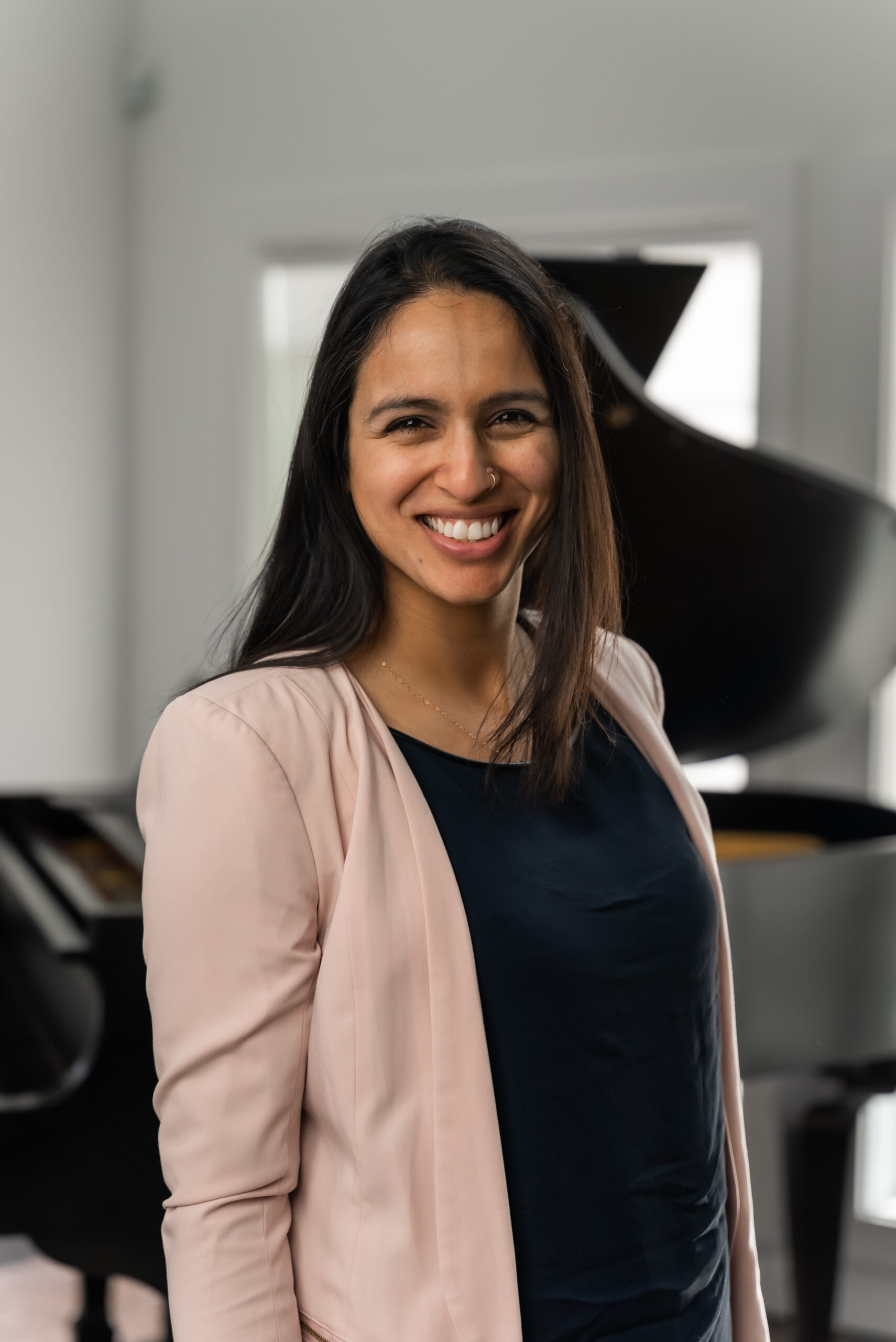Dr. Rebecca Genuis is a fertility care physician based in Sherwood Park and a longtime member of the St. Luke’s Physicians Guild of Alberta. She was the guest speaker at the guild’s annual dinner. The following is an interview with her.
When I moved to Edmonton from Ontario in 2011, I had just gotten married and was beginning my residency at the University of Alberta. One of the first things I remember doing was Googling around for a group of local, Catholic doctors.
I was delighted to find the St. Luke’s Guild and grateful to be able to attend some of their events over the years, particularly their annual White Mass with Archbishop Richard Smith. Being part of a community that shares a common faith and profession is unbelievably important. It’s a safe place to work out how your faith and professional life integrate with each other, to learn from those who have already trodden the path and it’s also a really solid foundation for deep friendships to form.
You were the guest speaker at the St. Luke’s Guild annual dinner. What is your message?
In my professional life, I work with couples who are struggling to conceive or maintain a pregnancy to help them discover the underlying cause of their supposed infertility in order to allow them to grow their families. In some circles, this is called functional medicine. Given that most attending the dinner weren’t particularly interested in conception, I drew from the foundations of functional medicine and some more current research on longevity to present a talk on how to live a long, and more importantly healthy, life. It’s pretty great (and efficient!) that some of the habits of the healthiest people in the world are natural to practising Catholics. For instance, attending a faith-based service four times per month is associated with an extra four to 14 years of life expectancy!

What are the main challenges facing Catholic physicians and medical professionals within the Edmonton area?
The greatest challenge to physicians in Canada right now is the lack of conscience rights protection. It used to be a given that medical professionals should not be involved in care they believe is harmful to their patients, while ensuring no patient is abandoned or left behind.
Protection of conscience rights ensures that if a physician morally objects to a procedure/intervention of any sort, they may opt out of it completely. For example, a physician who objects to euthanasia should have the right to be uninvolved – whether through referral or performance of the procedure.
Respect for this long held tradition seems to be fading fast, and is leading some physicians to retire sooner than they would have otherwise, some physicians to close or alter their practice, and other brilliant individuals who may have otherwise pursued a medical career to look elsewhere. At a time when many Albertans can’t access the care they need in a timely manner due to physician shortages, this lack of protection is only making the situation worse.
(Currently, medical professionals who do not wish to provide services such as abortion or medical assistance in dying are to refer patients to either a member or service that can, under the College of Physicians and Surgeons of Alberta standard of practice).
When a private member’s bill was brought forward last year to enshrine conscious rights protections in provincial legislation it was opposed by many of our regulatory bodies and defeated when it came to a vote. Currently, Ontario has removed all conscious rights protections for docs and the College of Physicians and Surgeons there is in the midst of expanding what they expect all physicians to do including telling patients about “all” the options available to them, including MAID (Medical Assistance In Dying), even if patients have never mentioned or requested it. Some national groups have challenged this removal of their conscience rights protections in court and have been defeated in their initial challenge and, I believe, their appeal. So things really aren’t looking great in that respect.
How does a Catholic physician balance his or her own conscience rights with their duty as medical professionals? What’s an example from your own experience?
In my experience, this just isn’t a difficult question. No physician that I’ve ever met who has a conscientious objection to any part or procedure of medicine is looking to be an obstructionist. They simply desire to practise medicine in a way that is authentic to themselves. This authentic practice often involves a great deal of sacrifice as they sincerely invest themselves in their patients’ wellbeing, but they’re not looking to impose their beliefs about what is right or wrong on the patients they see. In Alberta, it is very straightforward for all patients to access services that their physician may not be comfortable referring for as they are available directly to patients without physician involvement.
What is the current membership of the St. Luke’s Guild and is it still relevant today? If so, why?
The St. Luke’s Guild has been quieter over the last few years due to the pandemic, and this seems to be a trend across the country. I am the president of our national organization (the Canadian Federation of Catholic Physicians and Societies) and in that role I hear from many of our local guild presidents that they are now working to get things up and running again. There are some new local docs who are stepping into leadership roles with St. Luke’s Guild and I think we will see a lot of fruit coming from that. St. Luke’s is one of the oldest Catholic doctors’ guilds in Canada and continues to be an important place for like-minded physicians to meet and grow together.
The St. Luke’s Physicians Guild of Alberta can be reached by email: st.lukesguildedmonton@gmail.com
